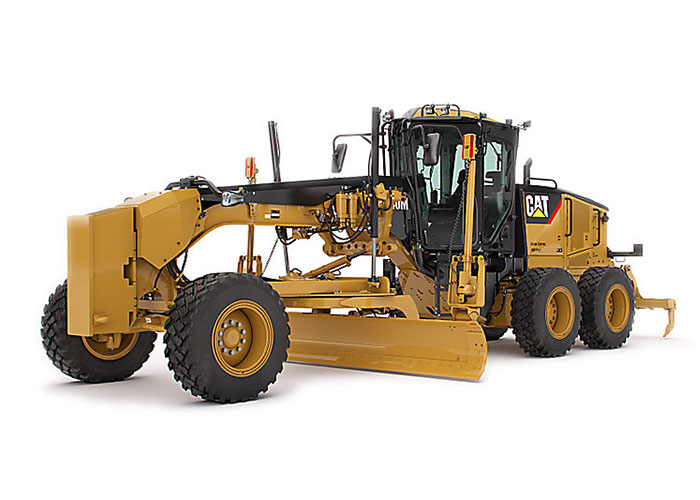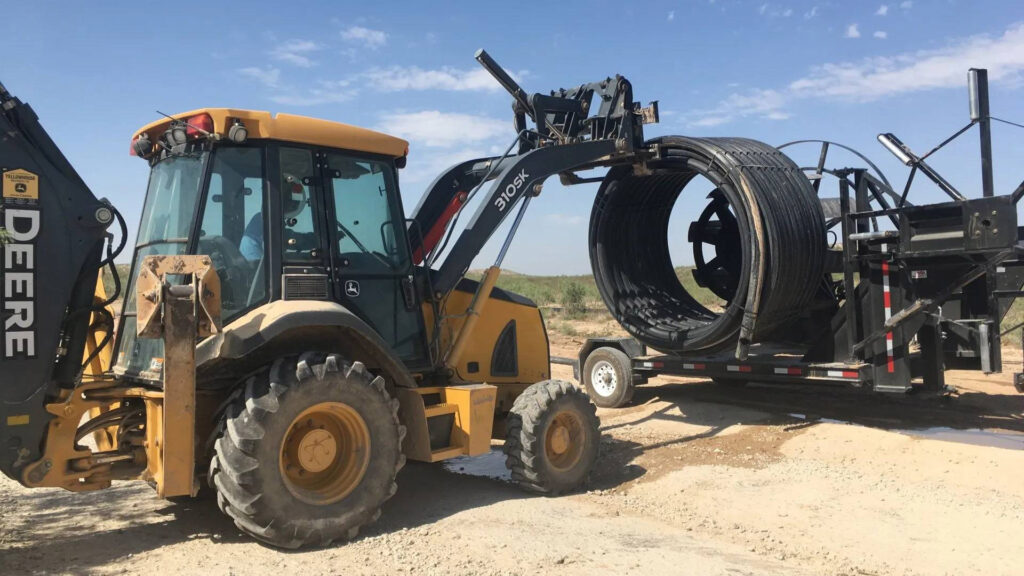Superior Oilfield pipeline equipment rentals: examples from the field
Wiki Article
A Comprehensive Guide to the Different Kinds Of Oil Field Equipment and Pipeline Equipment Available
The oil and gas industry relies heavily on specialized devices for reliable extraction and transportation. Different kinds of equipment, from piercing rigs to storage tanks, play crucial duties in this complex process. Each tool offers distinctive functions that add to overall operational success. Understanding these components is necessary for any person involved in the sector. As the industry develops, so as well do the innovations that sustain it. What improvements are on the perspective?
Drilling Rigs: The Backbone of Oil Exploration
Drilling rigs function as the vital machinery in the domain name of oil exploration, making it possible for business to access hydrocarbon gets buried deep under the Earth's surface area. These rigs can be found in different kinds, including land rigs, offshore rigs, and mobile devices, each created to run in certain environments. Outfitted with advanced modern technology, drilling rigs can pass through geological formations with accuracy, guaranteeing reliable resource removal. The architectural integrity and functional abilities of these rigs are crucial, as they should endure severe problems and significant pressures. The selection of an exploration rig affects the total project cost and timeline, making it a crucial factor to consider for oil companies looking for to enhance their expedition initiatives and maximize productivity in their operations.Pumps: Necessary for Liquid Activity
In the oil extraction process, the role of pumps is considerable, assisting in the motion of liquids throughout numerous phases of manufacturing. Pumps are necessary for transporting petroleum, water, and other liquids from underground reservoirs to the surface and after that with pipelines to refineries. They come in various types, including centrifugal, positive variation, and completely submersible pumps, each offering certain objectives based upon the liquid attributes and operational requirements. Centrifugal pumps are typically used for their efficiency in high-flow applications, while positive variation pumps master taking care of thick fluids. The choice of pump influences total performance, operational safety, and maintenance prices. Appropriate choice and maintenance of pumps are essential for maximizing production and reducing downtime in oil field procedures.Shutoffs: Managing Circulation and Pressure

Shutoffs play an essential duty in handling the circulation and pressure of fluids within oil areas and pipelines. Various types of shutoffs serve unique applications, each made to satisfy details functions essential for reliable operation - Superior Rentals fusion machines. Understanding the attributes and uses these valves is vital for maximizing system efficiency and safety
Types of Valves
Necessary parts in oil field operations, shutoffs play a crucial role in managing the circulation and stress of liquids within pipes and tools. Various kinds of valves are utilized to fulfill the varied needs of oil and gas production. Typical types consist of gateway shutoffs, which give a straight-line circulation and very little stress drop; globe valves, known for their throttling abilities; and sphere shutoffs, acknowledged for their fast on/off control. Furthermore, check shutoffs stop heartburn, while butterfly shutoffs use a lightweight service for controling flow. Each valve type is designed with specific products and arrangements to withstand the rough problems frequently found in oil fields, ensuring reliability and performance in procedures. Comprehending these types is vital for effective system management.Valve Applications and Functions
While various kinds of valves serve distinct objectives, their main applications focus on controlling flow and stress within oil and gas systems. Valves such as gateway, world, and ball shutoffs manage fluid movement, making certain peak efficiency and security. Gate shutoffs are commonly utilized for on/off control, offering minimal circulation resistance. Globe valves, on the various other hand, offer specific circulation regulation, making them appropriate for throttling applications. Round valves are preferred for their quick procedure and tight securing abilities. In addition, stress relief shutoffs are essential for stopping system overpressure, protecting tools stability. Overall, the proper selection and application of shutoffs enhance operational performance, guaranteeing the reliable transportation of oil and gas through pipelines and handling facilities.Compressors: Enhancing Gas Transportation
Compressors play an essential duty in the efficient transportation of gas, making certain that it moves efficiently through pipelines over lengthy distances. These gadgets raise the pressure of all-natural gas, allowing it to get rid of rubbing and elevation modifications within the pipeline system. In addition, compressors help with the harmonizing of supply and need, accommodating fluctuations in usage and manufacturing rates. Various sorts of compressors are utilized in the industry, including centrifugal, reciprocating, and rotary screw compressors, each offering distinctive benefits based on the operational demands. Regular maintenance of these compressors is essential to make best use of efficiency and minimize downtime, ultimately adding to a trustworthy gas transportation network. Their vital function highlights the importance of compressors in the overall oil and gas infrastructure.Storage Tanks: Safe and Reliable Fluid Monitoring
Reliable transport of gas relies upon different sustaining systems, one of which is the correct management of storage containers. These tanks play a vital role in safely consisting of fluids, making sure that operational effectiveness is kept while lessening environmental threats. Constructed from durable products, they are made to withstand high stress and harsh aspects. Properly sized and strategically located, storage containers facilitate the smooth flow of all-natural gas and various other liquids, stopping traffic jams in supply chains. Normal trenchless pipe repair near me maintenance and monitoring are critical to identify leaks or architectural issues, advertising safety and security and compliance with regulatory requirements. Ultimately, the efficient management of tank is vital for the total stability and dependability of the oil and gas market's liquid handling systems.
Pipeline Equipments: Infrastructure for Transport
Pipeline systems work as the foundation of the oil and gas sector, helping with the efficient transport of hydrocarbons over substantial ranges. These systems contain various components, consisting of pipes, shutoffs, pumps, and compressors, all meticulously designed to guarantee seamless circulation. The products utilized in pipeline building, typically steel or high-density polyethylene, are selected for sturdiness and resistance to rust. Pipeline click for more info networks can cover throughout land and water, linking production sites to refineries and warehouse. Additionally, progressed technology allows real-time monitoring of circulation prices and stress levels, boosting operational effectiveness. The tactical positioning of these pipelines minimizes ecological effect while maximizing source accessibility, thereby playing a necessary role in conference energy demands worldwide.Security Equipment: Making Certain Worker and Environmental Management
The procedure of pipeline systems, while essential for power transport, likewise presents substantial safety and security challenges for workers and the atmosphere. Safety equipment plays a considerable duty in reducing these risks. Personal safety equipment (PPE) such as headgears, handwear covers, and non-slip shoes safeguards workers from physical threats. Furthermore, gas discovery systems check for leaks, guaranteeing that unsafe substances do not posture a risk to personnel or the bordering community. Emergency situation shutdown systems are necessary for quickly stopping procedures during a situation, protecting against possible calamities. Spill containment products, including absorbents and barriers, are fundamental for lessening ecological effect. Generally, buying comprehensive safety equipment is crucial for preserving functional honesty and shielding both employees and the setting in the oil and gas industry.
Often Asked Concerns
Just how Do I Select the Right Oil Field Equipment for My Task?
Picking the ideal oil area devices includes assessing project specifications, budget constraints, and functional demands. Take into consideration variables such as devices integrity, compatibility with existing systems, and the provider's track record to assure peak efficiency and security.What Are the Upkeep Demands for Oil Field Equipment?
Upkeep demands for oil field devices include regular assessments, lubrication, and timely fixings. Operators should also follow supplier guidelines, screen performance metrics, and guarantee compliance with safety and security guidelines to enhance longevity and performance.
Exactly How Can I Make Certain Compliance With Environmental Laws?
To assure compliance with environmental policies, firms should perform normal audits, implement ideal techniques, purchase training, keep appropriate paperwork, and remain updated on regulations (Superior Oilfield pipeline equipment rentals). Collaboration with environmental companies can likewise enhance used heavy equipment adherence to regulationsWhat Is the Ordinary Lifespan of Pipeline Equipment?
The typical lifespan of pipeline equipment typically varies from 20 to 50 years, relying on aspects such as material quality, environmental problems, and upkeep techniques. Normal examinations can substantially influence durability and functional efficiency.Just how Do I Safely Transport Oil Field Equipment to Remote Locations?
Transporting oil area equipment to remote places needs mindful planning, consisting of route evaluation, protecting authorizations, utilizing appropriate lorries, and making sure security procedures are followed. Appropriate training and communication amongst staffs are vital for effective transportation.Report this wiki page